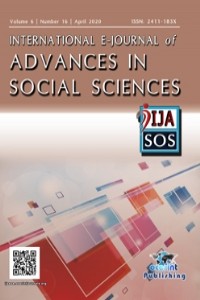GENDER ASPECT OF THE LINGUISTIC PERSONALITY OF A POLITICIAN OF THE 18TH CENTURY (ON THE BASE OF THE TEXT OF THE RUSSIAN EMPRESS CATHERINE THE GREAT)
Abstract
The article is devoted to the analysis of the gender specificity of the language personality of Catherine the Second through the study of the lexical and grammatical features of her texts. The novelty of the study consists in studying the linguistic personality of a politician in a diachronic aspect and in describing the features of the linguistic personality of Catherine II through the prism of her gender specificity. The reconstruction of the main personality features of Catherine II through comprehensive, multilevel analysis of language tools allows us to identify the psychological, pragmatic, cognitive, gender aspects of the speech behavior of the Russian Empress, the specifics of her linguistic picture of the world due to bio-socio-psychological personality data and ideological and thematic originality of her works of various genres. A study of the texts of Catherine the Second showed that the empress depicts her feelings, feelings, emotions figuratively, trying to emphasize and artistically highlight the meaning of a word depending on her communicative situation. It was proved that the empress’s gender also determines the fact that in the works of Catherine II of any genre a large number of lexical and semantic groups of words (nouns, adjectives, verbs) of feelings, perception and mental state are represented. One of the main signs of the author’s gender affiliation is the usage of a large number of metaphors, epithets, vivid comparisons and personifications, etc. The study revealed that the most important trend in female speech behavior is “increased emotionality and the desire to evaluate the activities of others”.
Keywords
linguistic personality gender linguistics linguistic picture of the world, lexical and semantic group.
References
- Teliya, V.N. (1988) Metaphorization and its role in creating a linguistic picture of the world. The role of the human factor in the language: Language and picture of the world. Moscow: Nauka.
Abstract
References
- Teliya, V.N. (1988) Metaphorization and its role in creating a linguistic picture of the world. The role of the human factor in the language: Language and picture of the world. Moscow: Nauka.
Details
| Primary Language | English |
|---|---|
| Journal Section | Articles |
| Authors | |
| Publication Date | September 10, 2020 |
| Submission Date | March 17, 2020 |
| Published in Issue | Year 2020 Volume: 6 Issue: 16 |
Cite
Contact: ijasosjournal@hotmail.com
The IJASOS Journal's site and its metadata are licensed under CC BY
Published and Sponsored by OCERINT International © 2015- 2025

